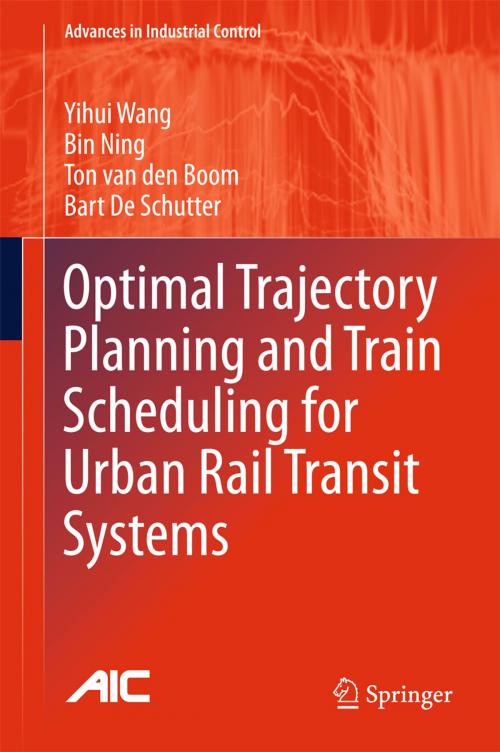Optimal Trajectory Planning and Train Scheduling for Urban Rail Transit Systems
Nonfiction, Science & Nature, Technology, Automation, Engineering, Civil| Author: | Yihui Wang, Bin Ning, Ton van den Boom, Bart De Schutter | ISBN: | 9783319308890 |
| Publisher: | Springer International Publishing | Publication: | April 21, 2016 |
| Imprint: | Springer | Language: | English |
| Author: | Yihui Wang, Bin Ning, Ton van den Boom, Bart De Schutter |
| ISBN: | 9783319308890 |
| Publisher: | Springer International Publishing |
| Publication: | April 21, 2016 |
| Imprint: | Springer |
| Language: | English |
This book contributes to making urban rail transport fast, punctual and energy-efficient –significant factors in the importance of public transportation systems to economic, environmental and social requirements at both municipal and national levels. It proposes new methods for shortening passenger travel times and for reducing energy consumption, addressing two major topics: (1) train trajectory planning: the authors derive a nonlinear model for the operation of trains and present several approaches for calculating optimal and energy-efficient trajectories within a given schedule; and (2) train scheduling: the authors develop a train scheduling model for urban rail systems and optimization approaches with which to balance total passenger travel time with energy efficiency and other costs to the operator.
Mixed-integer linear programming and pseudospectral methods are among the new methods proposed for single- and multi-train systems for the solution of the nonlinear trajectory planning problem which involves constraints such as varying speed restrictions and maximum traction/braking force. Signaling systems and their effects are also accounted for in the trajectory planning model.
Origin–destination passenger demand is included in the model formulation for train scheduling. Iterative convex programming and efficient bi-level approaches are utilized in the solution of the train-scheduling problem. In addition, the splitting rates and route choices of passengers are also optimized from the system point of view.
The problems and solutions described in Optimal Trajectory Planning and Train Scheduling for Urban Rail Transit Systems will interest researchers studying public transport systems and logistics whether from an academic or practitioner background as well as providing a real application for anybody studying optimization theory and predictive control.
This book contributes to making urban rail transport fast, punctual and energy-efficient –significant factors in the importance of public transportation systems to economic, environmental and social requirements at both municipal and national levels. It proposes new methods for shortening passenger travel times and for reducing energy consumption, addressing two major topics: (1) train trajectory planning: the authors derive a nonlinear model for the operation of trains and present several approaches for calculating optimal and energy-efficient trajectories within a given schedule; and (2) train scheduling: the authors develop a train scheduling model for urban rail systems and optimization approaches with which to balance total passenger travel time with energy efficiency and other costs to the operator.
Mixed-integer linear programming and pseudospectral methods are among the new methods proposed for single- and multi-train systems for the solution of the nonlinear trajectory planning problem which involves constraints such as varying speed restrictions and maximum traction/braking force. Signaling systems and their effects are also accounted for in the trajectory planning model.
Origin–destination passenger demand is included in the model formulation for train scheduling. Iterative convex programming and efficient bi-level approaches are utilized in the solution of the train-scheduling problem. In addition, the splitting rates and route choices of passengers are also optimized from the system point of view.
The problems and solutions described in Optimal Trajectory Planning and Train Scheduling for Urban Rail Transit Systems will interest researchers studying public transport systems and logistics whether from an academic or practitioner background as well as providing a real application for anybody studying optimization theory and predictive control.















